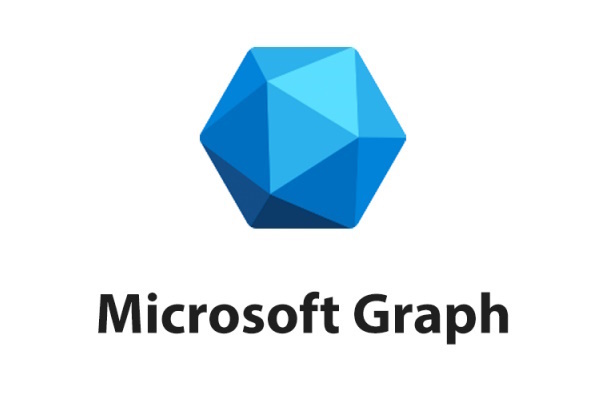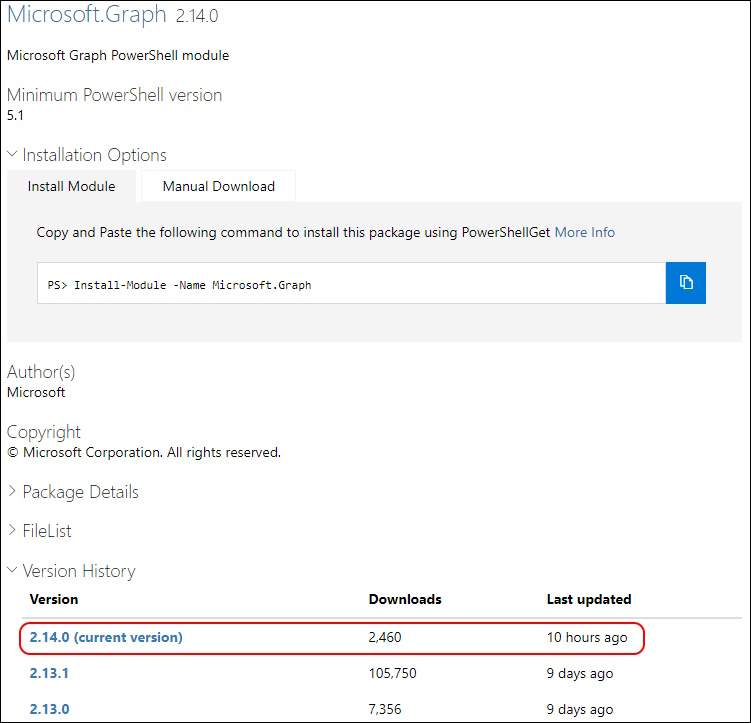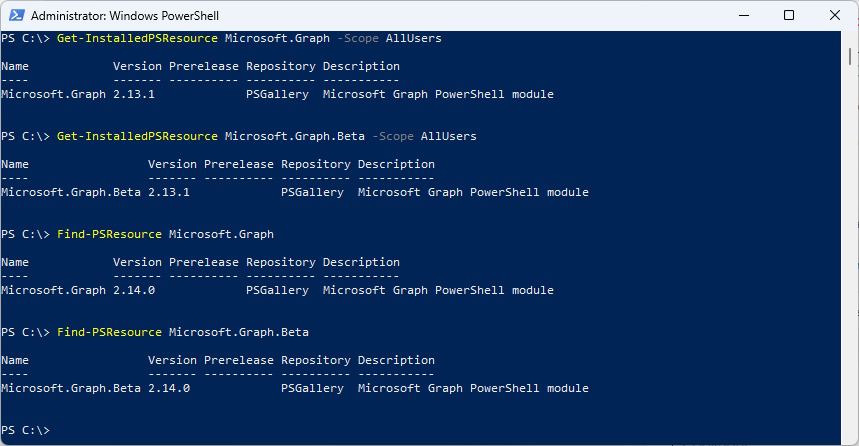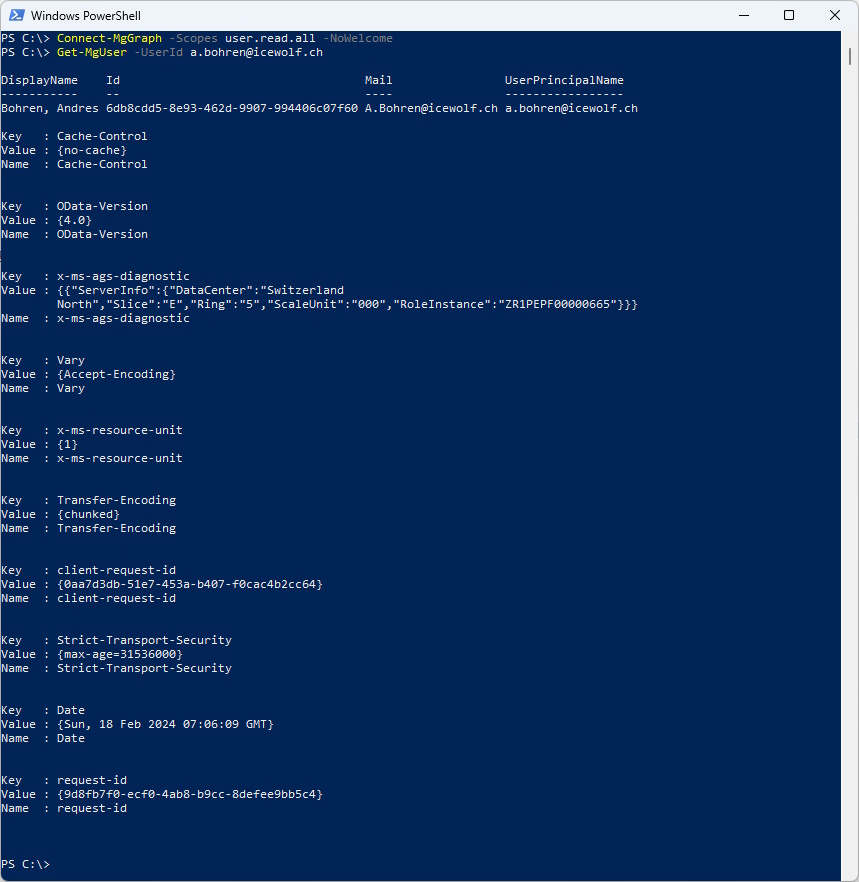Microsoft.Graph PowerShell Modules 2.14.0 released

Hi All,
Today Microsoft has released the Version 2.14.0 of Microsoft.Graph and Microsoft.Graph.Beta Modules.
- PowerShell Gallery Microsoft.Graph 2.14.0
- PowerShell Gallery Microsoft.Graph.Beta 2.14.0
- [v2] Weekly OpenApiDocs Refresh
- [v2] Examples Update in #2590
- Changing policy scope type in preapproval cmdlets
I am using the new PSResourceGet here instead of the PowerShellGet commands.
Show installed Versions and what’s available in PowerShell Gallery
Get-InstalledPSResource Microsoft.Graph -Scope AllUsers
Get-InstalledPSResource Microsoft.Graph.Beta -Scope AllUsers
Find-PSResource Microsoft.Graph
Find-PSResource Microsoft.Graph.Beta
Uninstalling the old Microsoft.Graph Modules
Get-InstalledPSResource Microsoft.Graph -Scope AllUsers -ErrorAction SilentlyContinue | Uninstall-PSResource -Scope AllUsers -SkipDependencyCheck
Get-InstalledPSResource Microsoft.Graph* -Scope AllUsers -ErrorAction SilentlyContinue | Uninstall-PSResource -Scope AllUsers -SkipDependencyCheck
Installing the New Microsoft.Graph Modules
Install-PSResource Microsoft.Graph -Scope AllUsers -WarningAction SilentlyContinue
Install-PSResource Microsoft.Graph.Beta -Scope AllUsers -WarningAction SilentlyContinue
List all the Modules
Get-PSResource Microsoft.Graph.* -Scope AllUsers
Some basic testing - since Microsoft.Graph 2.13.1 a the ResponseHeaders are included in the Result
Connect-MgGraph -Scopes user.read.all -NoWelcome
Get-MgUser -UserId a.bohren@icewolf.ch
That will break some Scripts because the Result is an Array with the Count of two. Users[1].DisplayName is empty, because the last entry in the Array are the ResponseHeaders.
There is an open Issue on GitHub Get-MgGroup v2.13.1 returns spurious ResponseHeader object
$Users = Get-MgUser -UserId a.bohren@icewolf.ch
$Users.Count
Foreach ($User in $Users)
{
$DisplayName = $User.DisplayName
Write-Host "DisplayName: $DisplayName"
}
Or you can simply use my M365PSProfile Module - find the Documentation here: https://github.com/fabrisodotps1/M365PSProfile/
Install-PSResource -Name M365PSProfile
Add-M365PSProfile
Install-M365Module
Regards
Andres Bohren













